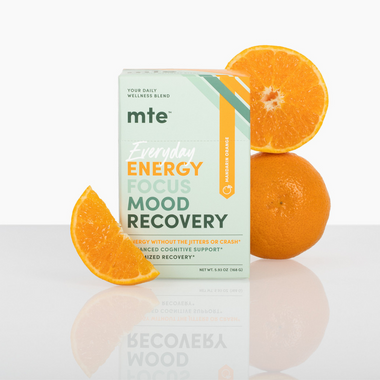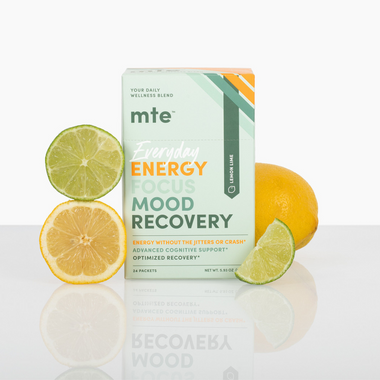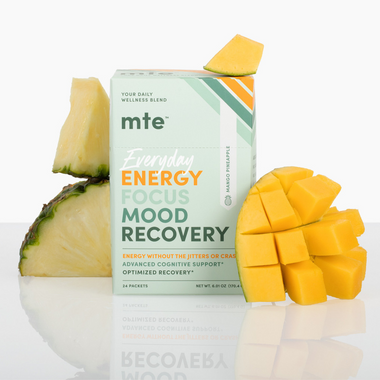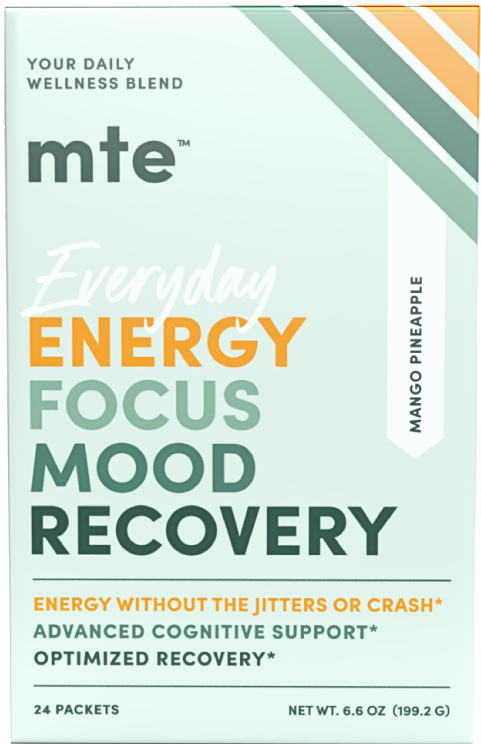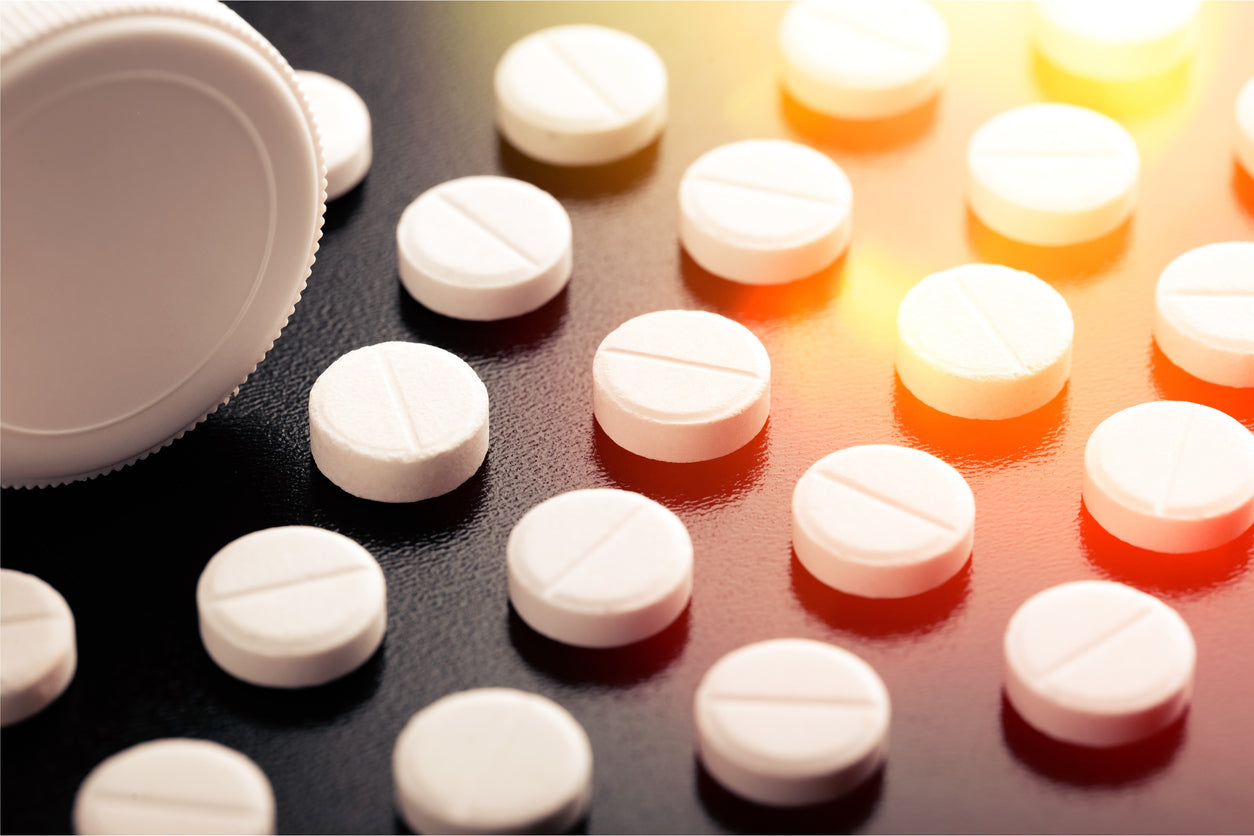
Adderall Brain: Double Entendre or Double-Edged Sword?
Adderall. It’s everywhere. Depending on who you ask, it might be an amazing medical treatment that’s completely changed their life, a casual (if not illegal) pick-me-up for studying or social outings, or the newest street drug epidemic endangering all our kids. An amphetamine prescribed for attention-related disorders and narcolepsy, Adderall restores balanced energy, focus, and executive functioning to individuals with deficiencies in those brain regions/ brain chemistry. The issue is the millions of people who don’t have those challenges but choose to take Adderall for other purposes — there’s a price to that pick-me-up.
While it’s not not meth, like most things, there’s nuance to the Adderall dilemma. There are big differences between needs and wants, use and misuse, and who is helped or hurt by psychostimulants like Adderall, Ritalin, or caffeine. Is ADHD an epidemic? Is Adderall addiction a national crisis? No — reality is not sensational like that; the media just likes to make it seem that way. But it is something to talk about and unpack a little bit. So let’s do that!
How Does Adderall Affect the Brain Short-Term?
Individuals with ADHD have dysfunction in how dopamine is produced, made available, transported, absorbed, and/or responded to — the brain is a complicated place; we’re not exactly sure. When Adderall hits the bloodstream, it stimulates dopamine, serotonin, and norepinephrine, which is why it’s such an effective productivity supplement for individuals with ADHD or narcolepsy. Where a neurotypical person taking Adderall might feel euphoric, a person with ADHD just feels more in-control of themselves and the situations they find themselves in.
If you don’t need to be taking Adderall, research indicates that not only do these effects on the dopaminergic system have little-to-no positive effect on cognitive processes, but that they actually disrupt connectivity in the salience-executive network, a brain system that manages your ability to detect important information, switch attention and resources, and control thoughts and behavior. So, like, not important stuff; no big deal. Because all you’re doing is suffocating your judgment and decision-making while boosting dopamine, ADHD meds have high abuse and addiction potential.
Short-term misuse can also lead to:
- Sleeplessness
- Dry mouth
- Headaches
- GI upset
- High and/or irregular heart rate
- Loss of appetite
What About Long-Term Adderall Effects?
It’s important to explicitly state that there is virtually no evidence of long-term brain changes or damage for people who take Adderall for a prescribed condition under the monitoring of a healthcare provider. In a medical context, Adderall functions as… a medication. But outside a medical context, it functions as an amphetamine. Hence, the “it’s not not meth.”
An early review of the literature in 2009 found that, in adults, misuse of amphetamines can lead to permanent changes in the brain associated with the dopaminergic system. While the mechanism isn’t clear, what’s clear is that the dopamine system, which is all-important in memory, learning, attention, motivation, and just feeling okay on the reg, is significantly suppressed, if not permanently damaged.
In a 2016 study on self-administered methamphetamines in non-human primates, researchers allowed squirrel monkeys free access to, well, meth. RIP. After establishing an addiction, researchers gave the monkey acquisition and discrimination tasks. Their results indicated misuse of psychostimulants results in significant disruptions to learning processes and inhibitory control.
Prolonged misuse can also lead to:
- Stroke/heart attack
- Anxiety
- Depression
- Mood swings
- Psychosis
- Suicidal ideation
What’s all the fearmongering for if it’s not dangerous for people who take psychostimulants licitly? Because millions of people aren’t! In 2022, nearly 15% of US college students reported misusing prescription stimulants. And according to the CDC, in 2023 alone, 3.9 million people over the age of 12 misused prescription stimulants. When you consider that many are buying these off-label pills on the street, there’s also the dangers of fentanyl to consider — 70% of pills on the illegal drug market that are confiscated by the DEA contain overdose levels of it.
Why Adderall Helps Some but Hurts Others
People have different brain biologies, which is why there’s no single solution to a single human complaint, let alone those of the mind. Unquestionably, Adderall offers medical benefits to those who actually have those specific cognitive differences. But for those looking for a quick, non-caffeinated fix and turn to off-script Adderall to do it? Survey says: not so much. And by survey, we do mean science. Actually, the first ever pilot study on off-label Adderall use in healthy college students in 2018 indicated it didn’t really boost cognition and focus at all, just positive emotions and energy. That makes it sound less like a study aid and more like a street drug, no?
Because it floods the brain with pro-focus, feel-good chemicals, individuals with dopamine deficiencies and reduced blood flow in related brain regions benefit from Adderall. It’s the same reason that nicotine addiction rates are higher in people diagnosed with psychiatric conditions — when our brains aren’t braining right, we self-medicate to compensate. But when you don’t have a dopamine deficiency and are flooding your brain with feel-good on top of feel-good, you’re actually just creating a problem for yourself. Which is probably why Adderall is classified as a Schedule II drug… and probably why when you search “Adderall brain” the majority of the results are for addiction and rehab centers.
We get it — daily energy boosters are almost a necessity in our overscheduled, overstressed lives. But casual use of a not-so-casual stimulant isn’t the healthiest way to do it. We’ve got to do better. Which is where MTE’s daily wellness drink comes in to replace first-gen stimulants with something more… evolved.
Adderall Curious? Considering Other Options: Paraxanthine
Whether you’re curious to try Adderall or curious to quit it, a new player has entered the game, and it deserves a shoutout: paraxanthine. Is it the holy grail of motivation and focus? Maybe. We like it okay…
Just kidding — it’s awesome.
Paraxanthine is the main metabolite of caffeine. Basically, when you consume caffeine, it travels to the liver, where it’s broken down into 3 main compounds. Paraxanthine is one of those and accounts for about 80% of caffeine’s byproducts. Until a few years ago, we were only able to observe paraxanthine in laboratory settings, but an innovative company called enfinity brought paraxanthine into the real world.
Why should anyone care? Because research indicates paraxanthine is responsible for the beneficial effects of caffeine but isn’t associated with the side effects of caffeine, like tolerance, dependence, irritability, brain fog - you get it. And while paraxanthine is a stimulant, just like caffeine and adderall, it’s a gentler, more sustainable supplement for focus, energy, and productivity. Research indicates paraxanthine has the ability to increase free dopamine in the brain and supports paraxanthine as a healthy alternative to stimulants that doesn’t cause crash or sleep rebound, and those studies are continuing to stack up.
MTE: A Breakthrough Productivity & Focus Supplement
We’re out to change the paradigm in the health and wellness industry, because healthy productivity supplements can be a reality with the right research and the right approach. Can everyone taper off Adderall? No; of course not. Should everyone taper off Adderall? Also, no. As we’ve seen, the Adderall dilemma isn’t about it being inherently horrible and dangerous — it’s about the context of who’s using it, how much, and why. Like we said at the jump — nuance.
But if you’re curious to try a healthy alternative to mind-bending stimulants, MTE’s adaptogens, nootropics, and superfoods offer the cognitive benefits of compounds like caffeine and Adderall but without the inherent risks associated with stimulants, especially addiction and dependence.
If you could hack your brain back into focus without hacking away at your executive functioning like a serial killer wielding a butcher knife, wouldn’t you?
Something to think about. Check it out.
